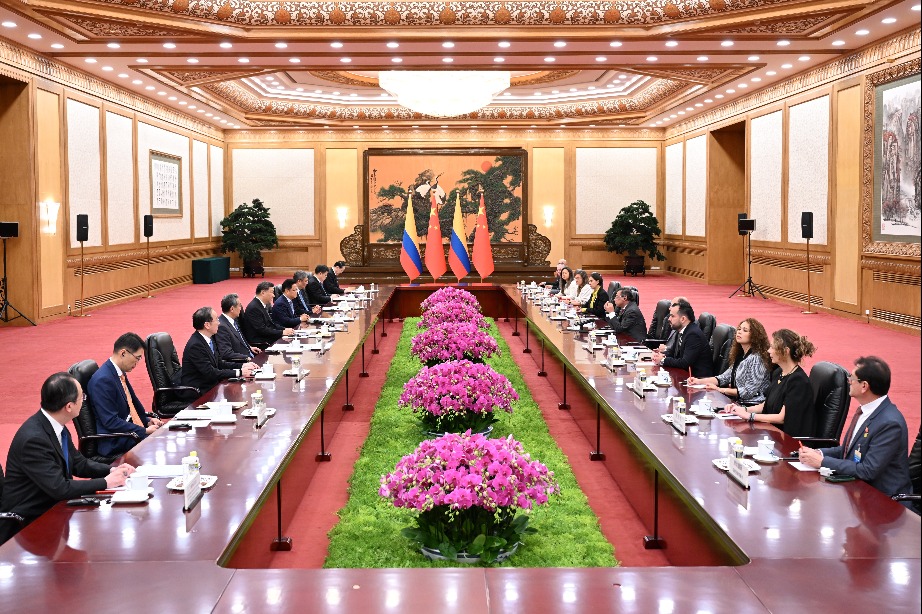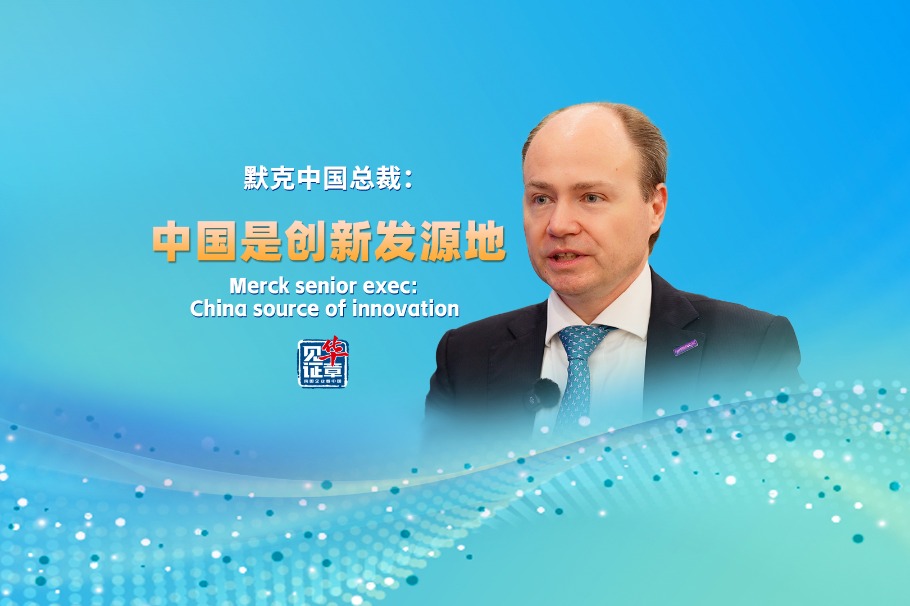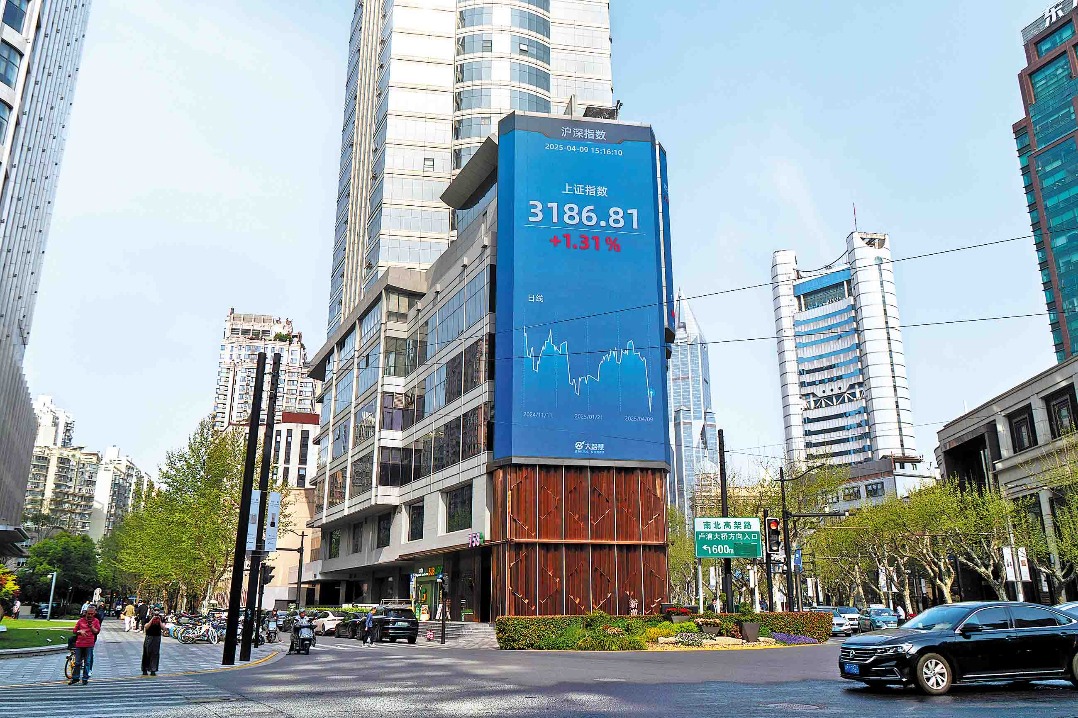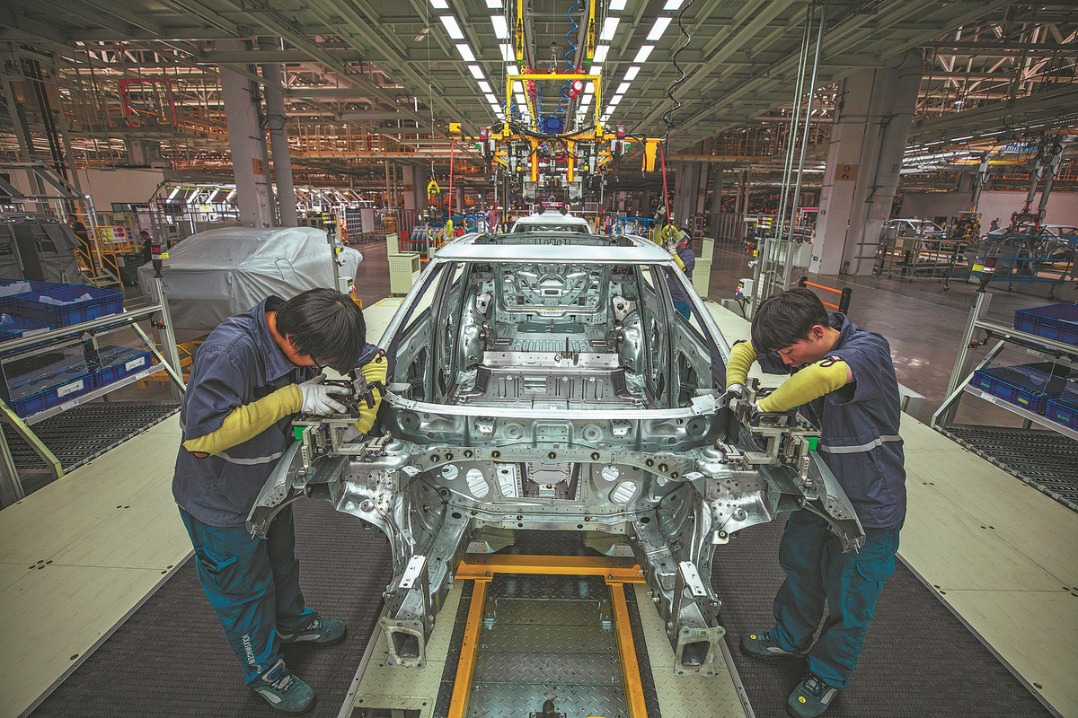Sharing 'cake' in fairer way


China must revamp its tax structure and adopt a better third distribution system to narrow its income inequality, which is widening because of insufficient redistribution policies
China has set the target of achieving common prosperity by the middle of this century. To meet the goal, the country needs to sustain the momentum of economic growth in order to make the "cake" bigger while reforming its income distribution system to share the "cake" in a fairer way.
China's economy expanded by 3 percent last year. In the fourth quarter of 2022, the growth rate dipped below 3 percent, but it rebounded to 4.5 percent in the first quarter of this year and registered 5.5 percent growth in the first half of this year. The country has set this year's growth target at around 5 percent, reflecting a cautious attitude toward short-term economic development.
Weak demand is a major hurdle for China's economic development. At the start of the century, the ratio of household consumption as a proportion of China's GDP declined dramatically from 43 percent in 2003 to 34 percent in 2010.
Although the figure increased in the following years, the consumption ratio hasn't recovered to the level at the start of the century. Over the past five years, it has hovered around 38 percent. This means that more efforts should be made to expand consumption.
On the one hand, the country ought to enlarge the middle-income group and narrow the income inequality by further enriching the lower-income groups. On the other hand, it is imperative to create sufficient jobs, and improve the social safety net to boost consumers' confidence.
China's income inequality remains huge, primarily as a result of insufficient distribution policies. Developed countries' Gini coefficient — a measurement of income inequality — after primary distribution is mostly above 0.4, or even higher than 0.5. The index for China was 0.47 in 2021.
In most developed countries, the figure can decrease between 20 percent and 40 percent to below 0.4 through adjustment measures such as taxation and transfer payments. However, China's Gini coefficient only drops by around 10 percent after income redistribution. Therefore, we believe China should double down on improving the redistribution system to reduce the income inequality.
There are two priorities in tax reform: one is to increase the share of direct taxes, and the other is to deepen the reform on personal income tax.
Direct taxes, including personal income tax and property tax, could reduce income inequality under a progressive taxation system, while indirect taxes, such as value-added tax, don't reduce — if not increase — the income inequality. The ratio of personal income tax in China's total tax revenue is relatively small — despite rising from 6.58 percent in 2019 to 8.1 percent in 2021 — which is not sufficient to reduce the income inequality.
Apart from revamping the unreasonable tax structure, China also needs to reform the personal income tax to ensure income distribution is more equitable.
First, capital income should be taxed. Individuals with higher incomes will be subject to higher tax rates — whether their income comes from labor or capital income. At present, wage earners are the major contributors to the country's personal income tax revenues.
Second, personal income tax should be levied with family as a unit, covering the earnings derived from salary, business and property, with tax deductions offered for families with different needs to guarantee fair distribution.
Third, a mechanism should be built whereby the threshold of personal income tax, the taxable amount and tax rates are adjusted in line with price fluctuations, changes in residents' incomes and demographics, preferably on a yearly basis. In a nutshell, all these reforms are aimed at reducing income inequality.
Another pillar of a society's income distribution system is third distribution. To encourage "those who get rich first help their less well-off peers", China needs to foster a social atmosphere that encourages philanthropy and charity and roll out more supporting policies. Currently, the lack of an effective third distribution system has severely impeded the growth of China's charity causes, and failed to adjust income distribution.
A better third distribution system is necessary to stimulate the development of charity and narrow the income gap. It would also promote social harmony and stability by easing the hostility against the rich. To improve third distribution, the government should regard charity organizations as partners in providing better public services and give them stronger support.
The author is dean of the Institute for Common Prosperity and Development at Zhejiang University. The author contributed this article to China Watch, a think tank powered by China Daily.
The views do not necessarily reflect those of China Daily.
Contact the editor at editor@chinawatch.cn.































